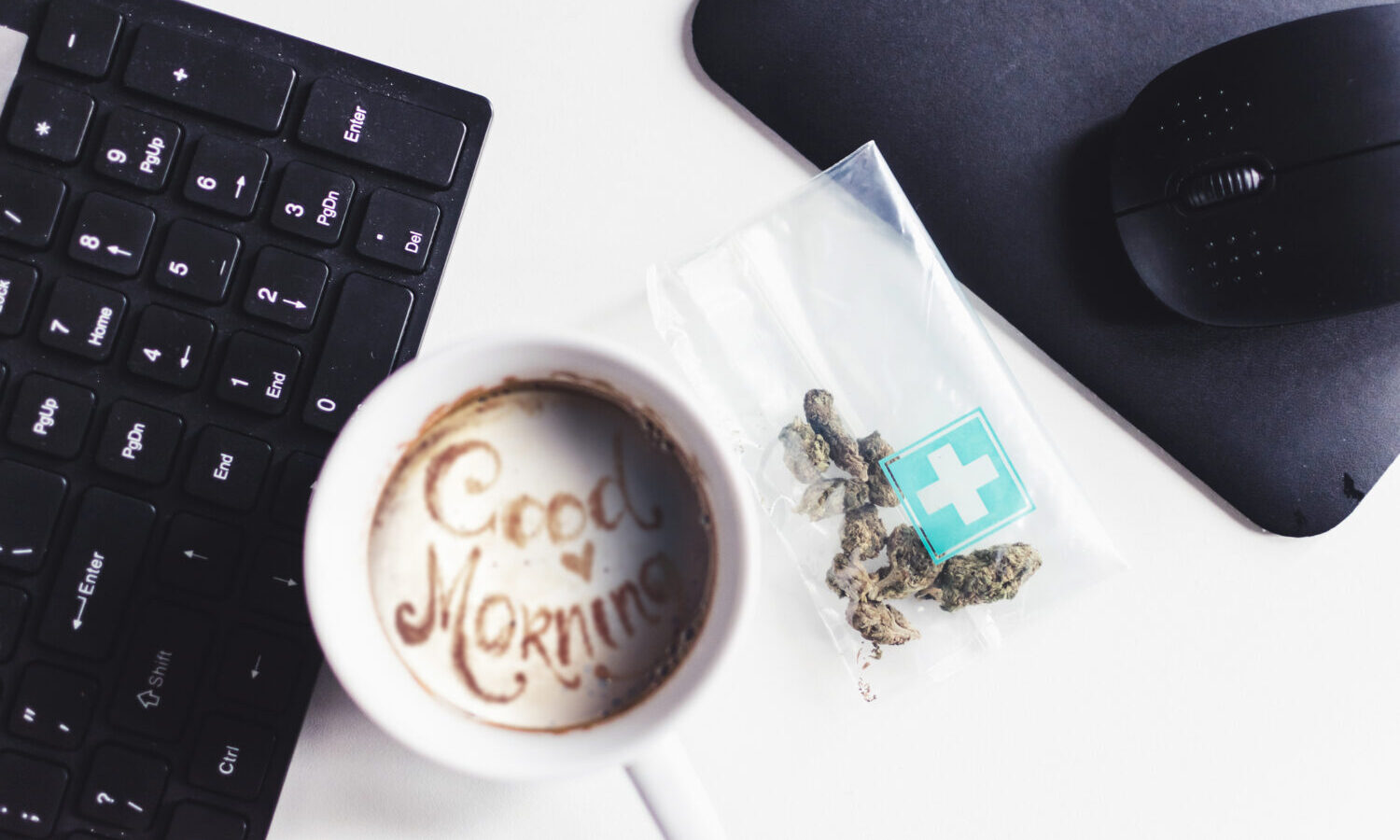Business
Mixing Marijuana: How Cannabis Interacts With Melatonin, Caffeine, And Alcohol

Consuming both melatonin and marijuana at the same time can make you extremely sleepy, drowsy, and sedated. Here’s how weed might affect you when combining it with caffeine and alcohol.
Many of us consume a wide range of substances to help keep us sane in this crazy life: coffee to help wake us up and be productive; alcohol, for celebrating or for decompressing; and melatonin, one of the most common over-the-counter sleep aids for those sleepless nights.
But with more people consuming cannabis, how do these interactions play about?
Coffee
According to experts, majority of Americans consume some kind of coffee drink daily. That’s millions of people who rely on a cup of joe for everyday. And the numbers of people who consume marijuana continue to rise too.
The euphoric bliss that comes with pairing coffee with marijuana is unlike any other. Many believe that the origins of combining coffee and marijuana started in Amsterdam, where the cannabis café culture was abuzz for many decades.
Whether you’re drinking a straight-up commercial THC or CBD infused coffee drink, or having a few puffs from your vape after your morning coffee, it’s hard to describe why this mix feels so good. The caffeine content in coffee stimulates the central nervous system and prevents you from getting sleepy, providing a much-needed mental and physical energy boost. Cannabis can work similarly in the human body.

However, everyone reacts differently to the combination. Some find that consuming CBD with coffee helps take the edge off a strong caffeine dose, while boosting it with THC can increase alertness and energy. A 2013 study suggests that the combination can improve cognitive performance, offering better concentration while the user also enjoys the medicinal benefits of cannabis.
In another study, researchers found that both marijuana and caffeine lead to a spike in dopamine levels through various mechanisms. The findings suggest that when these are taken at the same time, this dopamine increase could be responsible for the boost of happy feelings and euphoria.
Both cannabis and caffeine are natural compounds. Combining both is generally safe and well-tolerated by most people, as long as you don’t consume excessive amounts of coffee because this can lead to heart palpitations.
Melatonin
Melatonin is a hormone that the body naturally produces on its own as a response to darkness. It helps regulate the circadian rhythm, the internal clock that tells us when it’s time to sleep or wake up.
Humans have the highest natural levels of melatonin in the evening when it’s dark. This is a signal for us to prepare for bed. However, millions of people struggle with falling and staying asleep. Melatonin is also one of the easiest over-the-counter supplements available to help people sleep.
According to studies, marijuana consumption helps naturally increase melatonin levels. It’s not surprising then, that so many rely on marijuana to help them fall and stay asleep. There’s even a market for sleep-specific cannabis products because it works so well in fighting insomnia.

Consuming both melatonin and marijuana at the same time can make you extremely sleepy, drowsy, and sedated. This is not necessarily dangerous as long as you don’t take too much melatonin (experts recommend anywhere between 1-5mg per dose). There are no known dangerous interactions as of yet between the two, but it’s wise to tread cautiously.
Individuals who rely on cannabis to fall asleep due to pain or other illnesses that prevent them from getting decent shut eye are advised to talk to their physician if you need additional sleep aid. Instead of combining the two, which can lead to increased drowsiness when waking up in the morning, you may be better off with a stronger cannabis product or dose without needing to mix any substances.
Alcohol
Ahhhh… alcohol. The most popular legal and addictive substance society has today. There’s nothing wrong with having a few glasses of wine or a few bottles of beer at the end of a stressful work week.
Mixing it with cannabis makes relaxing even more enjoyable: combining the two can provide a deep level of sedation that helps you forget about all the stress. But if you are a binge drinker, which is typically defined as drinking more than 4 or 5 drinks within two hours, mixing with cannabis is not recommended. According to the World Health Organization, alcohol is responsible for causing over 200 different illnesses. On top of that, drunk driving takes around 10,000 lives annually.
Casually mixing a few glasses of alcohol with a few tokes of weed is generally safe in moderation. However, it’s always safest to mix both when you are in the comfort of your own home and don’t have to worry about driving. But getting excessively drunk or stoned when mixing both can be dangerous and even cause blackouts.
Cannabis has also been shown to help reduce the incidence of liver cirrhosis, and minimize hangovers the next day. For many people who are seasoned cannabis consumers and know how to drink responsibly, the occasional mixing of both substances should be fine.
When it comes to CBD, which isn’t psychoactive, you may experience an increase in sleepiness when combining with alcohol if either is consumed in high doses. If you are interested in mixing CBD with your glass of wine, it’s always recommended to purchase from legitimate manufacturers especially those that can provide you with a certificate of analysis so that you know exactly how much you are consuming. Always choose a high CBD and low to no THC product to increase the safety of the experience.
Business
New Mexico cannabis operator fined, loses license for alleged BioTrack fraud

New Mexico regulators fined a cannabis operator nearly $300,000 and revoked its license after the company allegedly created fake reports in the state’s traceability software.
The New Mexico Cannabis Control Division (CCD) accused marijuana manufacturer and retailer Golden Roots of 11 violations, according to Albuquerque Business First.
Golden Roots operates the The Cannabis Revolution Dispensary.
The majority of the violations are related to the Albuquerque company’s improper use of BioTrack, which has been New Mexico’s track-and-trace vendor since 2015.
The CCD alleges Golden Roots reported marijuana production only two months after it had received its vertically integrated license, according to Albuquerque Business First.
Because cannabis takes longer than two months to be cultivated, the CCD was suspicious of the report.
After inspecting the company’s premises, the CCD alleged Golden Roots reported cultivation, transportation and sales in BioTrack but wasn’t able to provide officers who inspected the site evidence that the operator was cultivating cannabis.
In April, the CCD revoked Golden Roots’ license and issued a $10,000 fine, according to the news outlet.
The company requested a hearing, which the regulator scheduled for Sept. 1.
At the hearing, the CCD testified that the company’s dried-cannabis weights in BioTrack were suspicious because they didn’t seem to accurately reflect how much weight marijuana loses as it dries.
Company employees also poorly accounted for why they were making adjustments in the system of up to 24 pounds of cannabis, making comments such as “bad” or “mistake” in the software, Albuquerque Business First reported.
Golden Roots was fined $298,972.05 – the amount regulators allege the company made selling products that weren’t properly accounted for in BioTrack.
The CCD has been cracking down on cannabis operators accused of selling products procured from out-of-state or not grown legally:
- Regulators alleged in August that Albuquerque dispensary Sawmill Sweet Leaf sold out-of-state products and didn’t have a license for extraction.
- Paradise Exotics Distro lost its license in July after regulators alleged the company sold products made in California.
Golden Roots was the first alleged rulebreaker in New Mexico to be asked to pay a large fine.
Source: https://mjbizdaily.com/new-mexico-cannabis-operator-fined-loses-license-for-alleged-biotrack-fraud/
Business
Marijuana companies suing US attorney general in federal prohibition challenge

Four marijuana companies, including a multistate operator, have filed a lawsuit against U.S. Attorney General Merrick Garland in which they allege the federal MJ prohibition under the Controlled Substances Act is no longer constitutional.
According to the complaint, filed Thursday in U.S. District Court in Massachusetts, retailer Canna Provisions, Treevit delivery service CEO Gyasi Sellers, cultivator Wiseacre Farm and MSO Verano Holdings Corp. are all harmed by “the federal government’s unconstitutional ban on cultivating, manufacturing, distributing, or possessing intrastate marijuana.”
Verano is headquartered in Chicago but has operations in Massachusetts; the other three operators are based in Massachusetts.
The lawsuit seeks a ruling that the “Controlled Substances Act is unconstitutional as applied to the intrastate cultivation, manufacture, possession, and distribution of marijuana pursuant to state law.”
The companies want the case to go before the U.S. Supreme Court.
They hired prominent law firm Boies Schiller Flexner to represent them.
The New York-based firm’s principal is David Boies, whose former clients include Microsoft, former presidential candidate Al Gore and Elizabeth Holmes’ disgraced startup Theranos.
Similar challenges to the federal Controlled Substances Act (CSA) have failed.
One such challenge led to a landmark Supreme Court decision in 2005.
In Gonzalez vs. Raich, the highest court in the United States ruled in a 6-3 decision that the commerce clause of the U.S. Constitution gave Congress the power to outlaw marijuana federally, even though state laws allow the cultivation and sale of cannabis.
In the 18 years since that ruling, 23 states and the District of Columbia have legalized adult-use marijuana and the federal government has allowed a multibillion-dollar cannabis industry to thrive.
Since both Congress and the U.S. Department of Justice, currently headed by Garland, have declined to intervene in state-licensed marijuana markets, the key facts that led to the Supreme Court’s 2005 ruling “no longer apply,” Boies said in a statement Thursday.
“The Supreme Court has since made clear that the federal government lacks the authority to regulate purely intrastate commerce,” Boies said.
“Moreover, the facts on which those precedents are based are no longer true.”
Verano President Darren Weiss said in a statement the company is “prepared to bring this case all the way to the Supreme Court in order to align federal law with how Congress has acted for years.”
While the Biden administration’s push to reschedule marijuana would help solve marijuana operators’ federal tax woes, neither rescheduling nor modest Congressional reforms such as the SAFER Banking Act “solve the fundamental issue,” Weiss added.
“The application of the CSA to lawful state-run cannabis business is an unconstitutional overreach on state sovereignty that has led to decades of harm, failed businesses, lost jobs, and unsafe working conditions.”
Business
Alabama to make another attempt Dec. 1 to award medical cannabis licenses

Alabama regulators are targeting Dec. 1 to award the first batch of medical cannabis business licenses after the agency’s first two attempts were scrapped because of scoring errors and litigation.
The first licenses will be awarded to individual cultivators, delivery providers, processors, dispensaries and state testing labs, according to the Alabama Medical Cannabis Commission (AMCC).
Then, on Dec. 12, the AMCC will award licenses for vertically integrated operations, a designation set primarily for multistate operators.
Licenses are expected to be handed out 28 days after they have been awarded, so MMJ production could begin in early January, according to the Alabama Daily News.
That means MMJ products could be available for patients around early March, an AMCC spokesperson told the media outlet.
Regulators initially awarded 21 business licenses in June, only to void them after applicants alleged inconsistencies with how the applications were scored.
Then, in August, the state awarded 24 different licenses – 19 went to June recipients – only to reverse themselves again and scratch those licenses after spurned applicants filed lawsuits.
A state judge dismissed a lawsuit filed by Chicago-based MSO Verano Holdings Corp., but another lawsuit is pending.
Source: https://mjbizdaily.com/alabama-plans-to-award-medical-cannabis-licenses-dec-1/
-

 Business2 years ago
Business2 years agoPot Odor Does Not Justify Probable Cause for Vehicle Searches, Minnesota Court Affirms
-

 Business2 years ago
Business2 years agoNew Mexico cannabis operator fined, loses license for alleged BioTrack fraud
-

 Business2 years ago
Business2 years agoAlabama to make another attempt Dec. 1 to award medical cannabis licenses
-

 Business2 years ago
Business2 years agoWashington State Pays Out $9.4 Million in Refunds Relating to Drug Convictions
-

 Business2 years ago
Business2 years agoMarijuana companies suing US attorney general in federal prohibition challenge
-

 Business2 years ago
Business2 years agoLegal Marijuana Handed A Nothing Burger From NY State
-

 Business2 years ago
Business2 years agoCan Cannabis Help Seasonal Depression
-

 Blogs2 years ago
Blogs2 years agoCannabis Art Is Flourishing On Etsy













